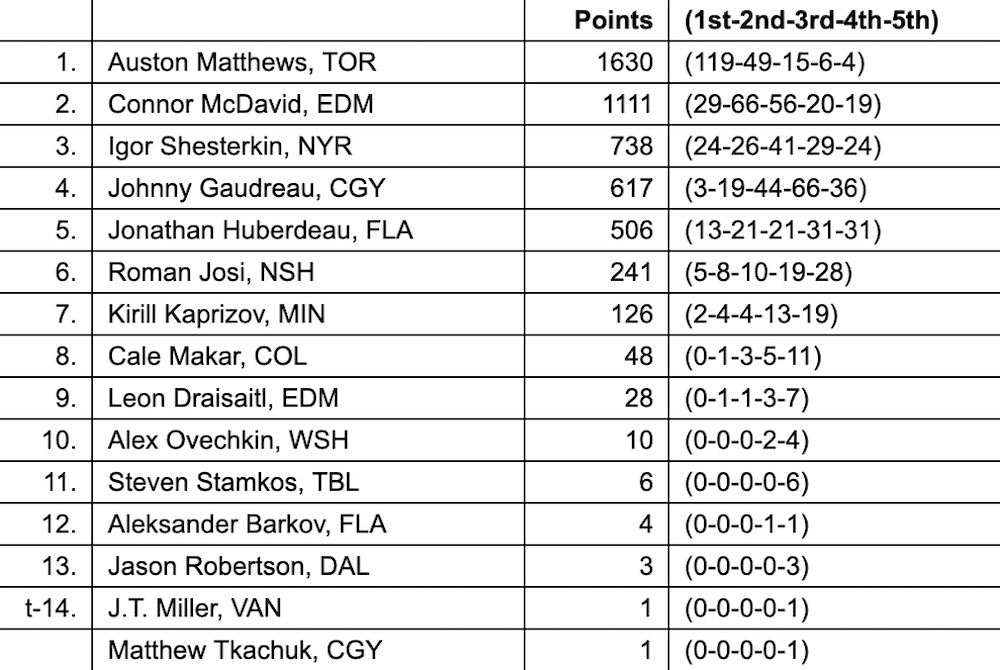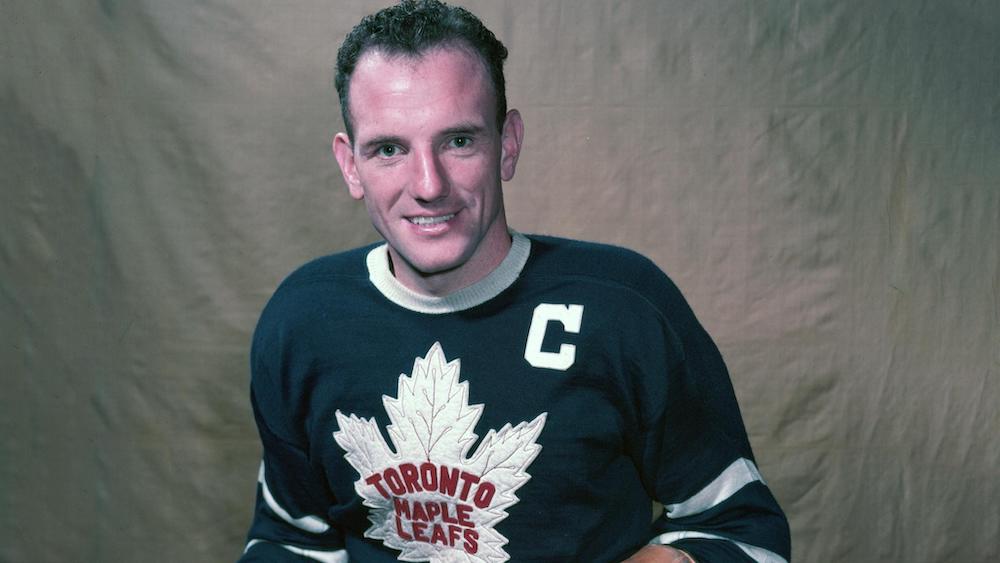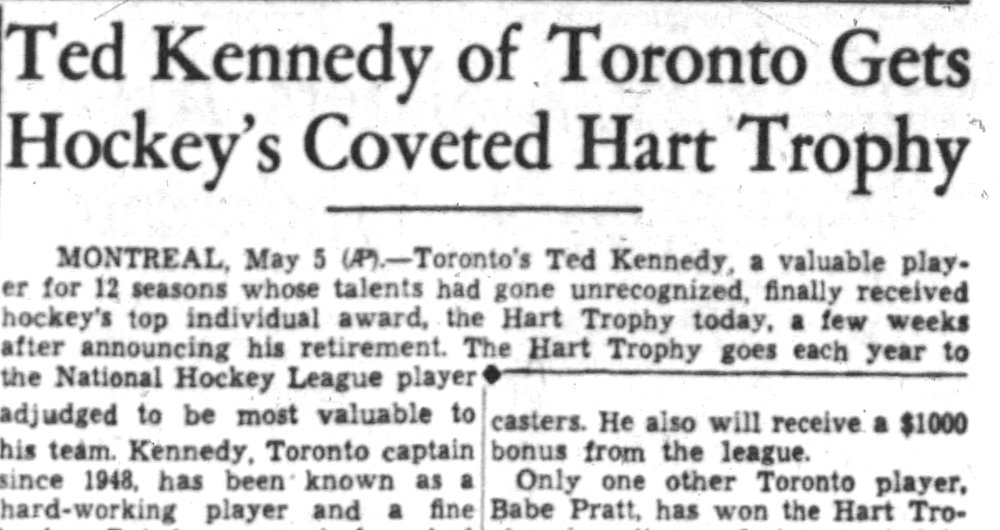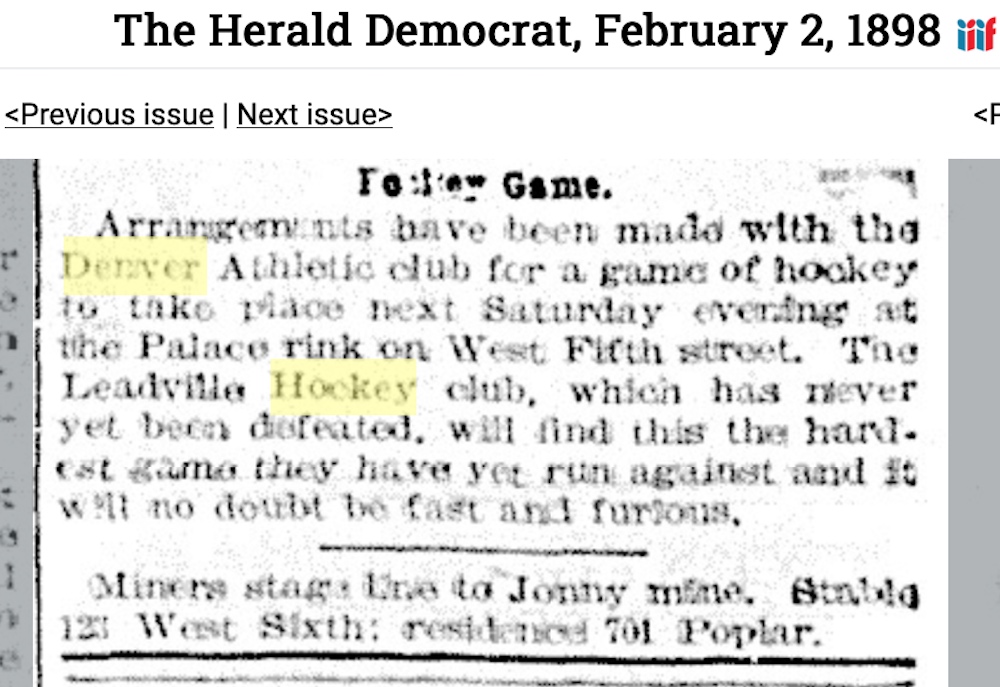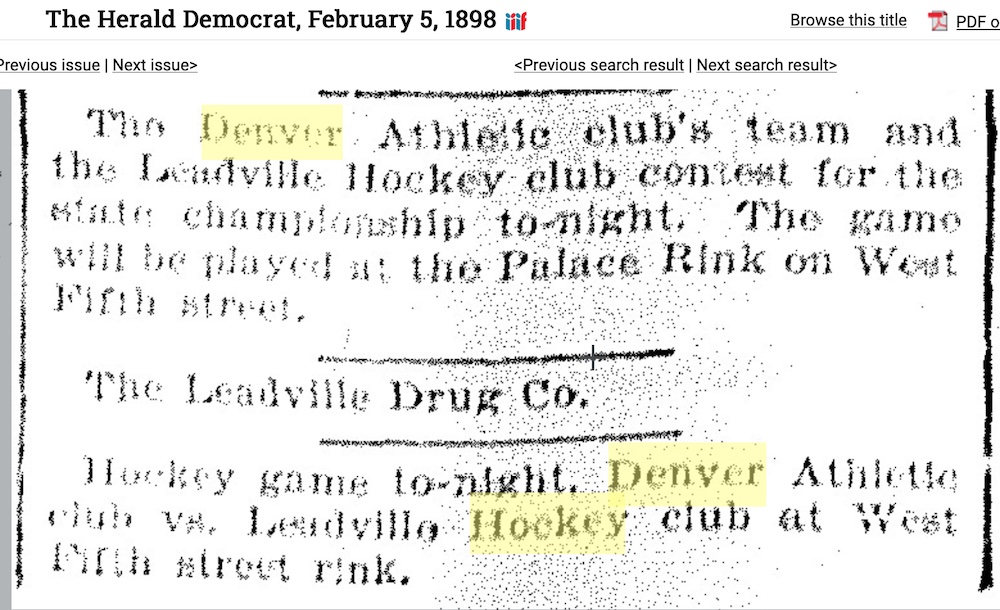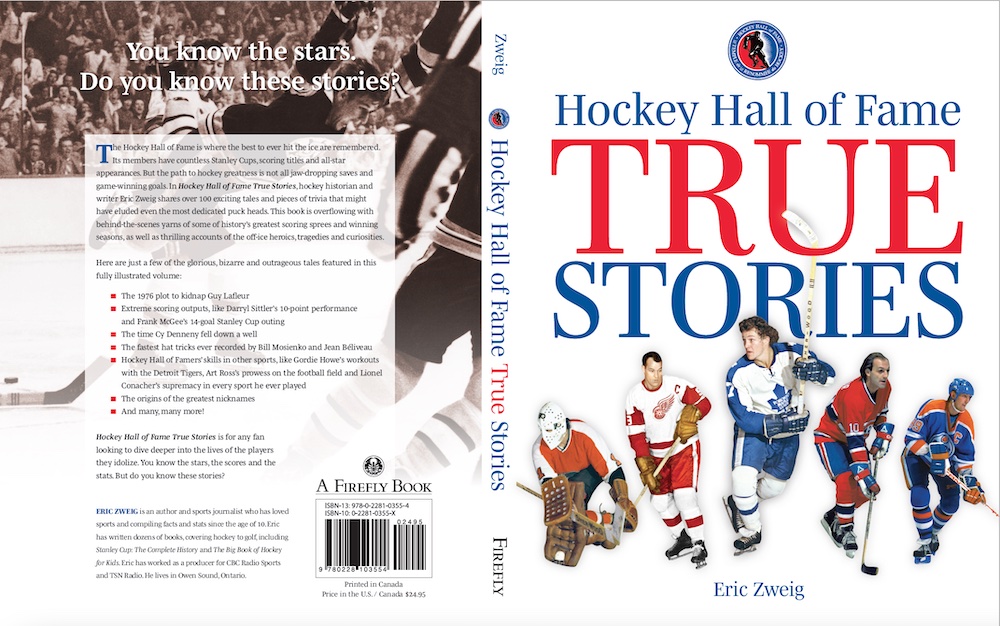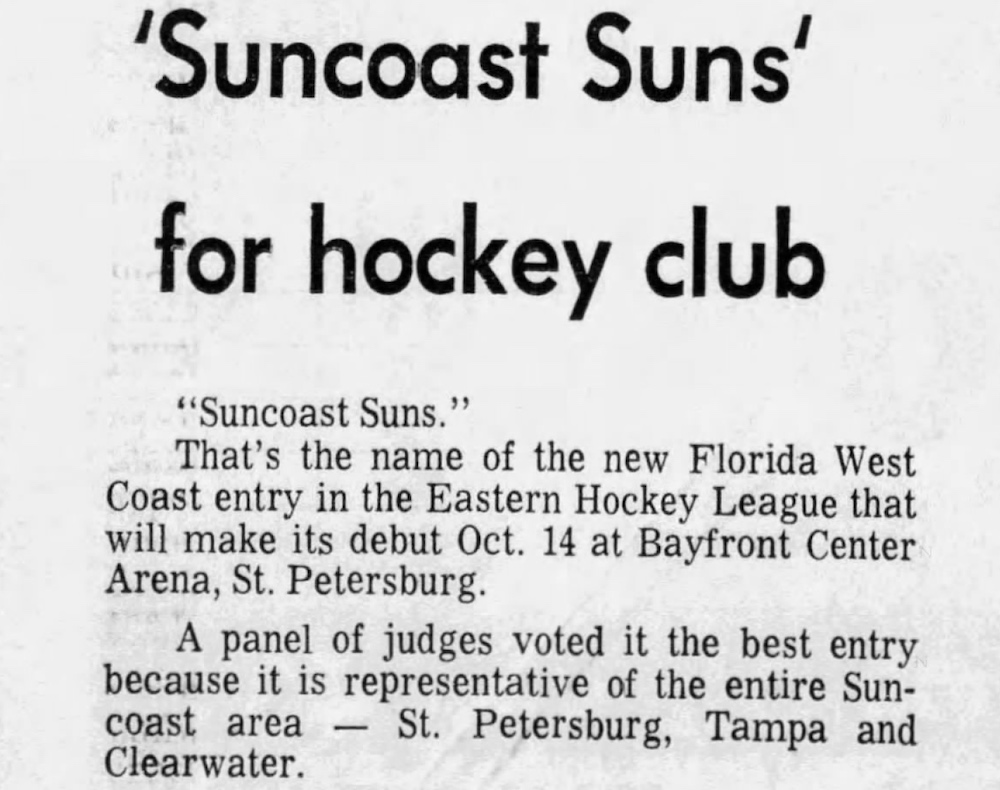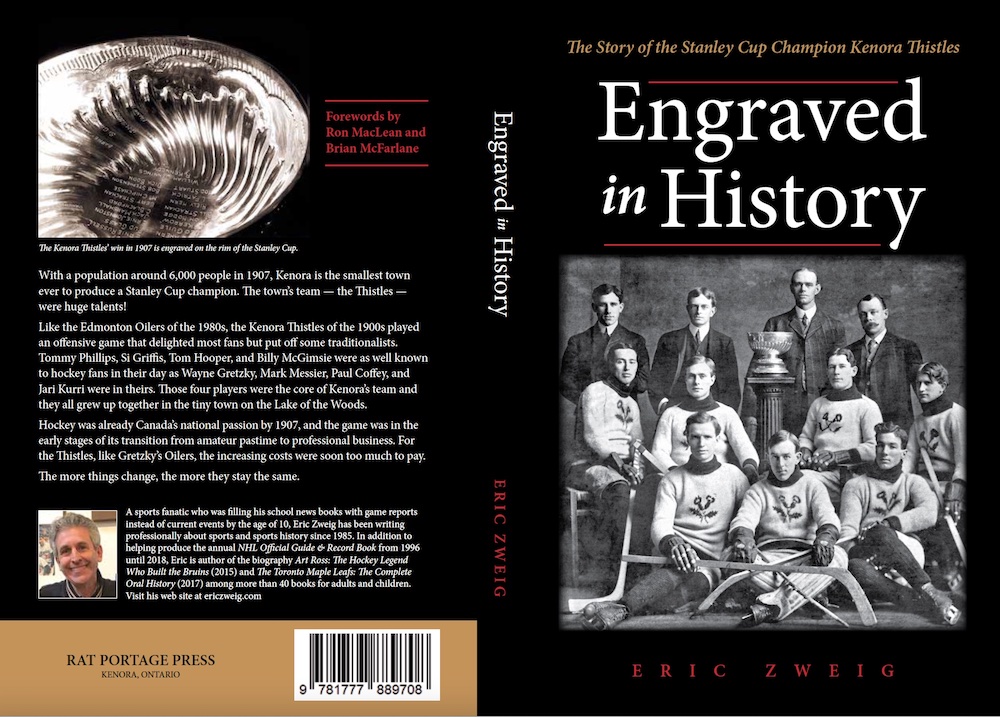Congratulations to the Colorado Avalanche who, on Sunday night, became Stanley Cup champions for the 2021-22 NHL season. It’s Colorado’s first Cup victory in 21 years, since 2001, and the team’s third since relocating from Quebec City for the 1995-96 season. The Nordiques, of course, never won the Stanley Cup, although they were Avco Cup champions of the World Hockey Association in 1976-77.
(Congratulations also to the newest members elected to the Hockey Hall of Fame, who were elected on Monday: Daniel Sedin, Henrik Sedin, Daniel Alfredsson, Roberto Luongo, Riikka Sallinen, and Herb Carnegie.)

Top-tier hockey in Quebec City dates back to around 1879, and even though the Nordiques were never champions of the NHL, Quebec is not without a Stanley Cup title. Two, in fact. You just have to go back 110 years to find them. In 1912, and again in 1913, the Quebec Bulldogs of the National Hockey Association won back-to-back championships.
Not surprisingly, there aren’t a lot of similarities between Colorado’s victory in 2022 and Quebec’s in 1912. For one thing, the Avalanche completed an 82-game schedule and four rounds of playoffs with a championship victory on June 26. The Bulldogs became champions on March 5 at the conclusion of an 18-game regular season without the need of playoffs. And Quebec certainly wasn’t facing a team from Tampa Bay in 1912. American cities weren’t yet allowed to complete. The key victory for Quebec that year came in Ottawa, with later wins at home against a team from Moncton, New Brunswick.
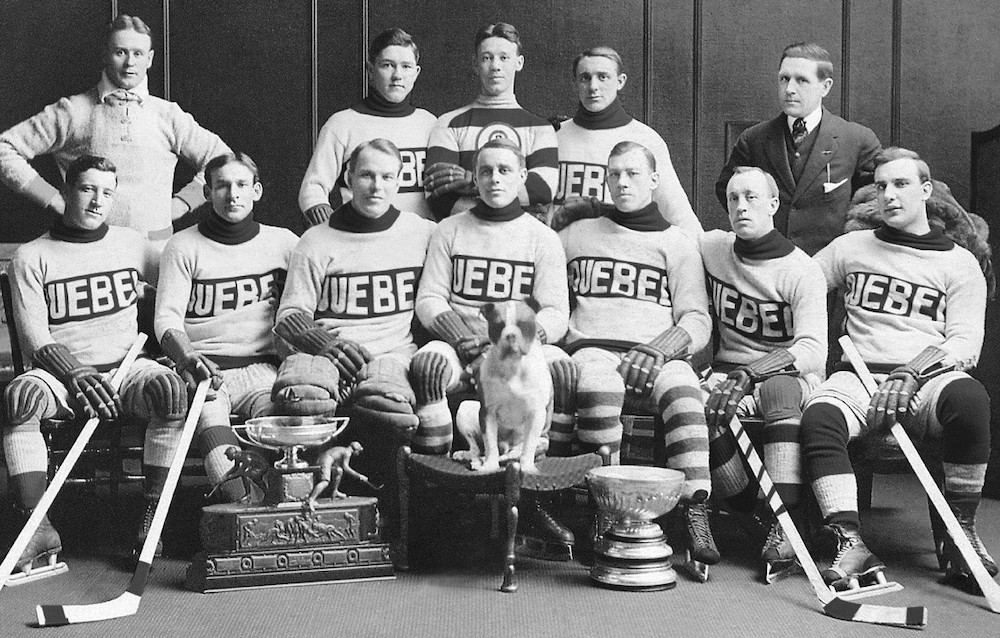
Hockey was a very different game back then. It was played on natural ice that relied on cold (winter) temperatures. The players would look ridiculously small, and poorly equipped, to modern eyes. There was no giant 32-team league that controlled the Stanley Cup, as the NHL does today. Train travel meant leagues were small and regional. In order to ensure that the Stanley Cup was a Canadian national trophy, the champion of one league was able to challenge the champion of another for the ultimate hockey prize.
Before the 1911-12 season, a new league was added to the national landscape: the Pacific Coast Hockey Association. Brothers Frank and Lester Patrick raided the NHA’s Bulldogs, as well as the Montreal Canadiens and Montreal Wanderers, to help stock their new teams in Vancouver, Victoria and New Westminster. Only the defending NHA and Stanley Cup champion Ottawa Senators were left in tact, a move which left most experts of the day predicting Ottawa would romp to another NHA title. Instead, the four-team race that year was remarkably close.
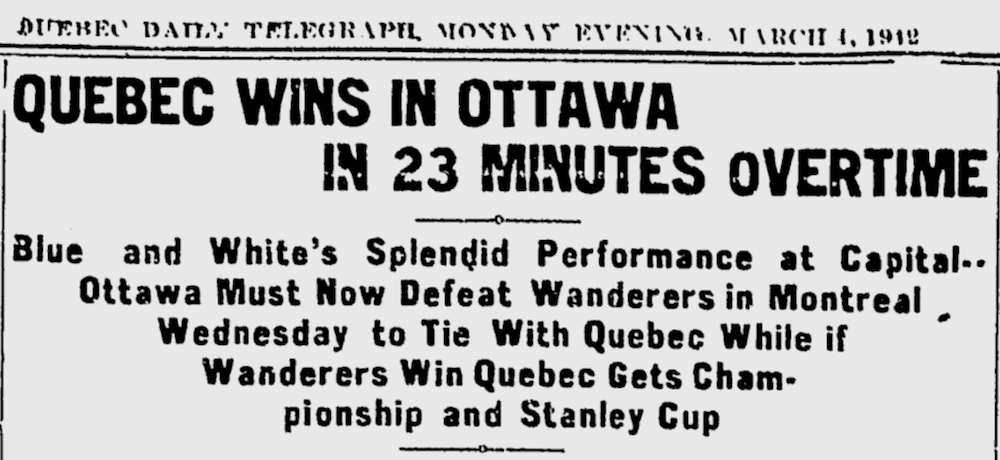
Heading into the final weekend of the season, Quebec had a record of 9-and-8. Ottawa was 9-and-7, while the Wanderers were 8-and-8. Only the Canadiens were out of contention at 7-and-10. On March 2, 1912, the Canadiens beat the Wanderers 2-1 to eliminate them from championship contention while the Bulldogs visited the Senators. A win for the home team would clinch another NHA title, but a win for the visitors would keep their championship hopes alive.
A small group of fans was on hand from Quebec City, but they were drowned out by 6,000 Ottawa faithful as the Senators took a 2–0 lead after one period. Future Hall of Famers Joe Hall and Joe Malone of Quebec scored in the second to tie the game before Ottawa went back on top with two goals midway through the third.

overtime winner, while the summary in the Chronicle lists Joe Hall
Again Quebec fought back for a tie, but Ottawa went ahead 5–4 with just three minutes remaining. As the final seconds were ticking down, many Ottawa fans began to take their celebration into the streets, but with only about 10 seconds to go, Joe Malone scored to tie the game. It took until three minutes into a second overtime session for Quebec to emerge with a 6–5 victory — and newspapers seem to be equally split over whether Joe Malone or Joe Hall netted the winner.
Over 10,000 people greeted the Bulldogs when their train arrived back in Quebec City on Sunday evening. There was a brass band and a bugle corps leading a parade through the streets, and players were called on to make speeches. The Quebec Chronicle refers to Joe Hall as being treated as the hero of heroes, though the Daily Telegraph credited Malone with the winner. But whoever had scored, the Bulldogs hadn’t won the NHA title and the Stanley Cup just yet.
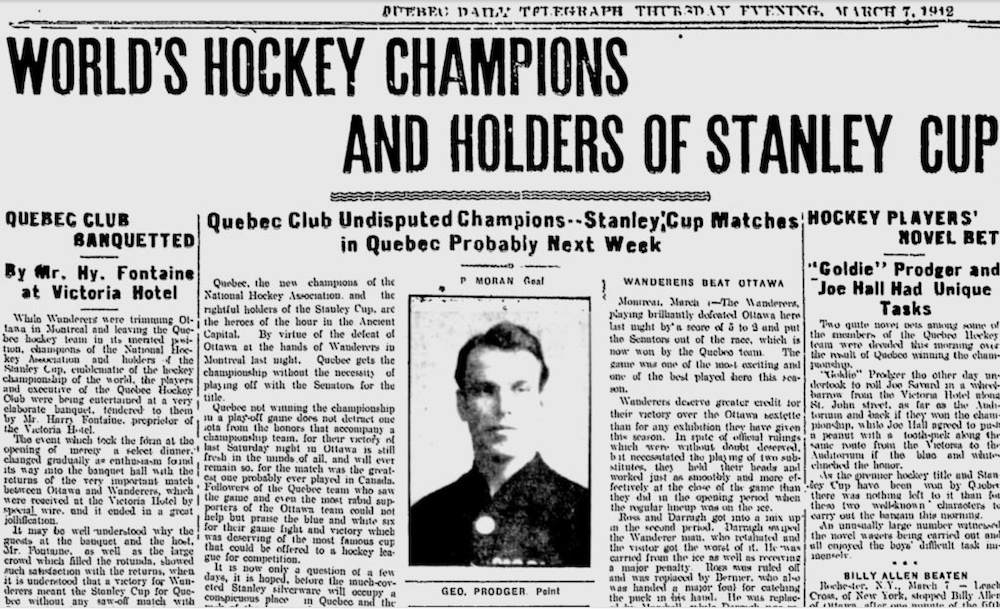
The Senators now had to make up a protested game from earlier in the season. If they beat the Montreal Wanderers they would be tied with Quebec and there would be a playoff. So, on the evening of March 6, 1912, the Bulldogs and some of their fans gathered for a banquet at the Victoria Hotel in Quebec City.
Course after course of fine food was served from a menu on which the first page paid tribute to Quebec players Paddy Moran, Goldie Prodger, Joe Hall, Jack Marks, Eddie Oatman, Jack MacDonald, and Joe Malone. The tribute was in the form of a song parody, spoofing the popular 1910 Billy Murray hit, What’s the Matter with Father? (People of my vintage will likely recognize the tune from What’s the Matter with Flintstone? from an early episode of the cartoon we all watched for years at lunch time.)
What's the matter with Goaler 'Pat'?
He's all right!
To 'Goldie' Prodger lift your hat —
He's all right.
Joe Hall would make a team alone;
Marks and Oatman hold their own.
What's the matter with 'Mac' and Malone?
They're all right.
A special telegraph wire was set up to provide everyone at the hotel with details of the game in Ottawa. When word came that the Wanderers had scored a 5–2 victory, the celebrations started all over again, with the Daily Telegraph reporting that people were soon singing the new song in rooms all over the hotel and then in the streets throughout the city.
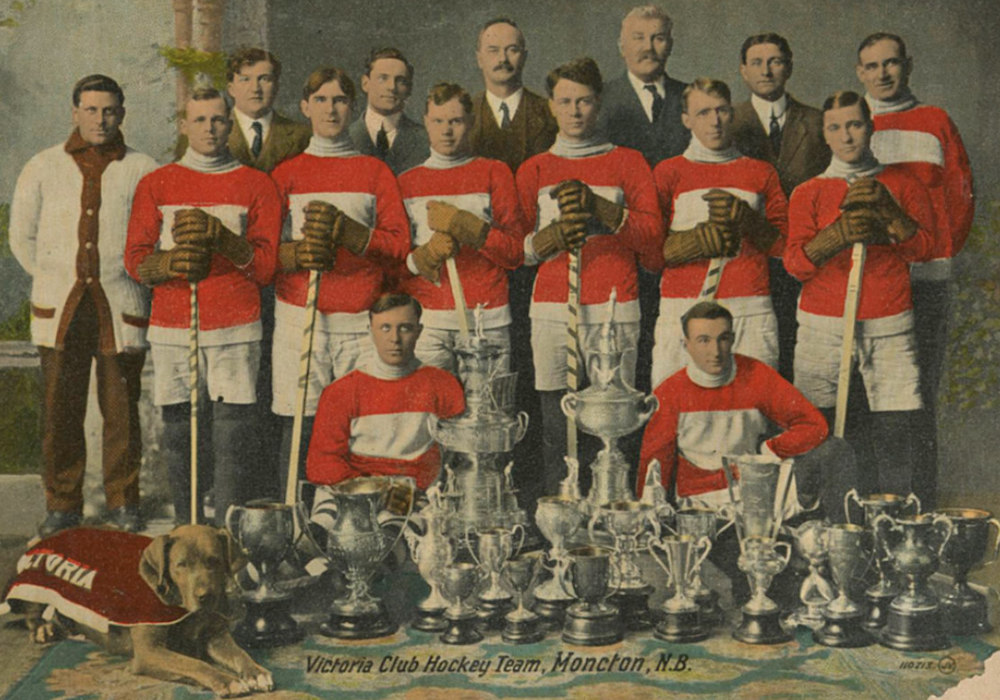
The following week, the Bulldogs played a Stanley Cup challenge series against the Moncton Victorias, champions of the Maritime Professional Hockey League. “Whether the trophy will remain here long or not, will depend on the ability of he Moncton team,” reported the Quebec Daily Telegraph, which reminded its readers that, “Judging from the advance notices, Quebec will have no easy thing to handle in the Moncton team.”
But, in fact, Quebec had a very easy time as the Bulldogs romped to victory in the two-game, total-goals series with a 9-3 win on March 11 and an 8-0 rout two nights later. The next season, with the NHA expanded to six teams with the addition of the Toronto Blueshirts and the Toronto Tecumsehs, Quebec rampaged through the 20-game season with a record of 16-and-4, and then crushed another Maritime team, the Sydney Millionaires, 14-3 and 6-2 to repeat as Stanley Cup champions.
* * * * * * * * * * * *My New Book is Available Now!
It’s fairly obvious to anyone who reads the stories I post that I love these “time travel” hockey tales. That’s why, when Rick Brignall contacted me a little over two years ago and asked if I’d be interested in writing the full story of the Kenora Thistles’ Stanley Cup victory of 1907, I told him that I’d kick myself if this book came out someday and I wasn’t involved with it. Now, finally, the book is ready!
As you may recall, Engraved in History: The Story of the Kenora Thistles and the Stanley Cup was originally scheduled to come out last November. A tactical delay, and then more Covid, pushed things back. (Floods this spring around Winnipeg and Kenora didn’t help either!) Now, the book is coming out in two stages. There will be a “National Launch” this fall, when you’ll be able to find the book on Amazon or, hopefully, at a store near you.
Until then, the book is available in Kenora, and will be available in my hometown of Owen Sound as well. But if you would like to purchase copies right now, and can’t get to Kenora or Owen Sound, fear not! You can order them online and copies will be mailed to you right away. You will have to pay for shipping, however.
The site is: ratportagepress.com. Click on the book cover when you get there. (The site is a little slim at the moment, but it will improve in the days ahead and is already good to.)
If you prefer to support an independent bookseller, Elizabeth Campbell Books/Darlington Gallery in Kenora has copies for sale too. Go to the Contact page on Elizabeth’s web site, where you’ll find a phone number you can call, or a comments section you can fill out.
If you are in Kenora, Rick will have the first copies for sale today at the local Farmer’s Market. (There will be a bigger event on Canada Day and the books will be available at the Cottage Guide booth at the Farmer’s Market all summer long.) They’ll also be available soon at the Lake of the Woods Museum.
In the Owen Sound area, I’ll have a few copies to sell at the Farmer’s Market in Flesherton on the morning of Saturday, July 16. Copies should be available at The Ginger Press in Owen Sound a little before that. (We’ll have something of a “Christmas in July” to celebrate at Ginger Press around the 25th or so.)
Come fall, with the full launch, we’ll have much more publicity, promotion and events.
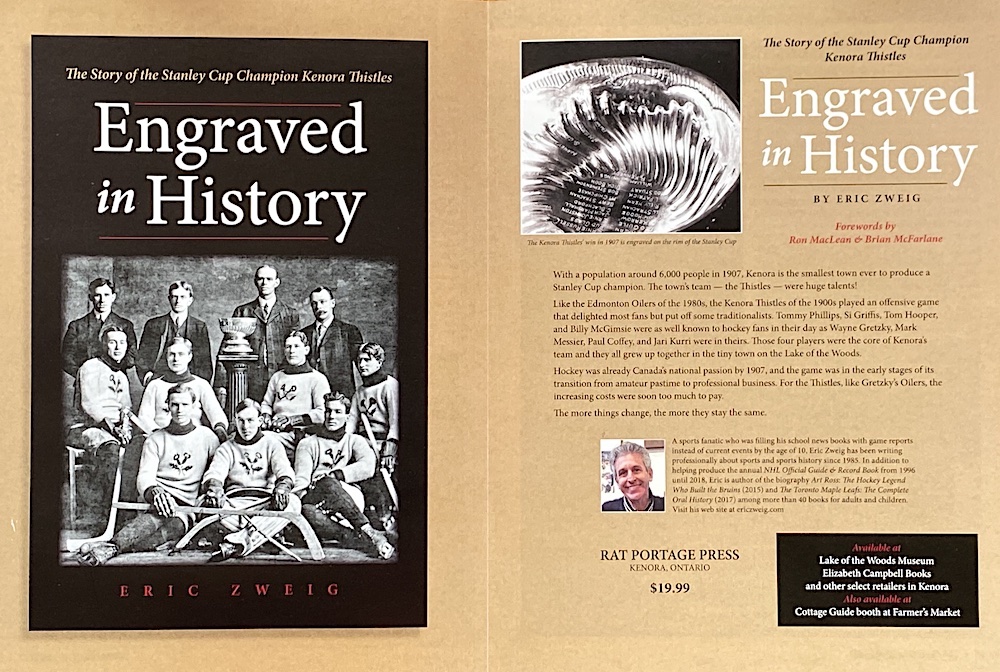
In the meantime, if you have any other questions, you can contact me directly at
eric@ericzweig.com.

